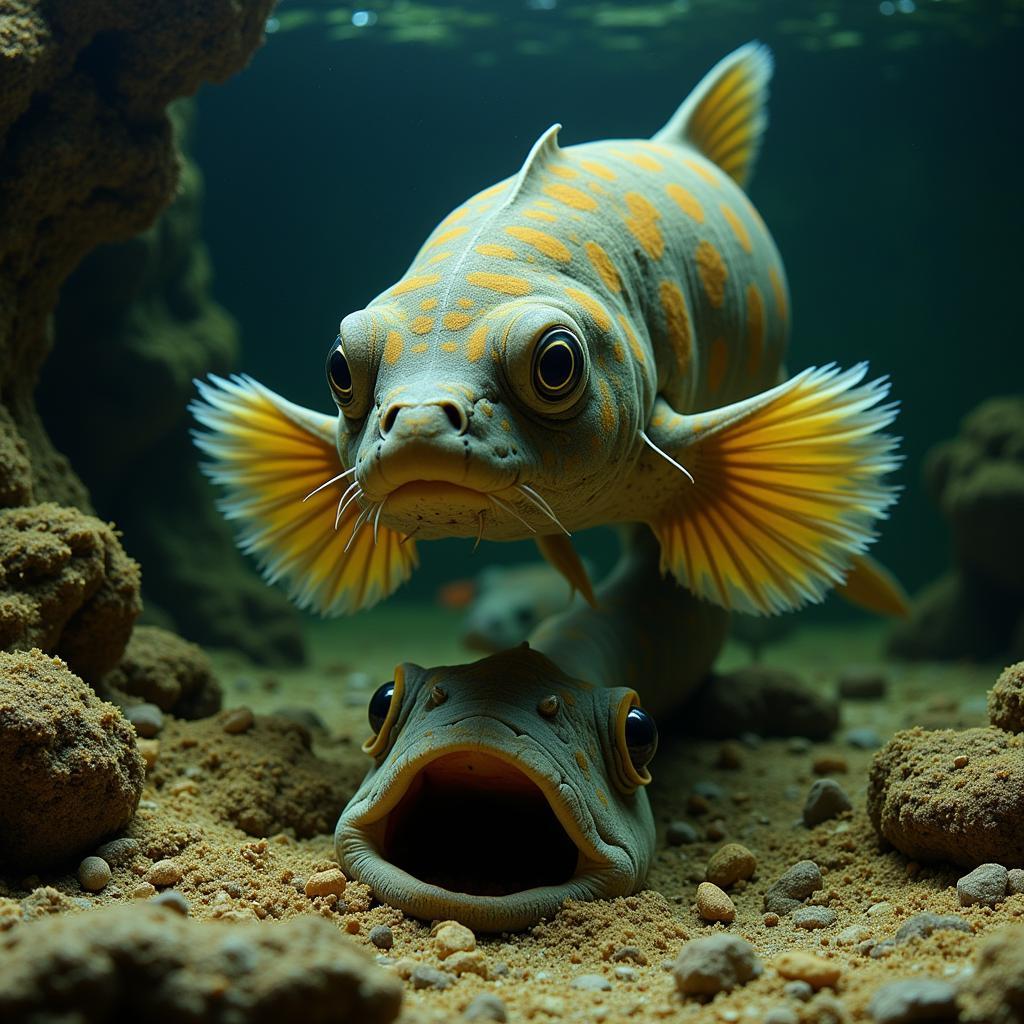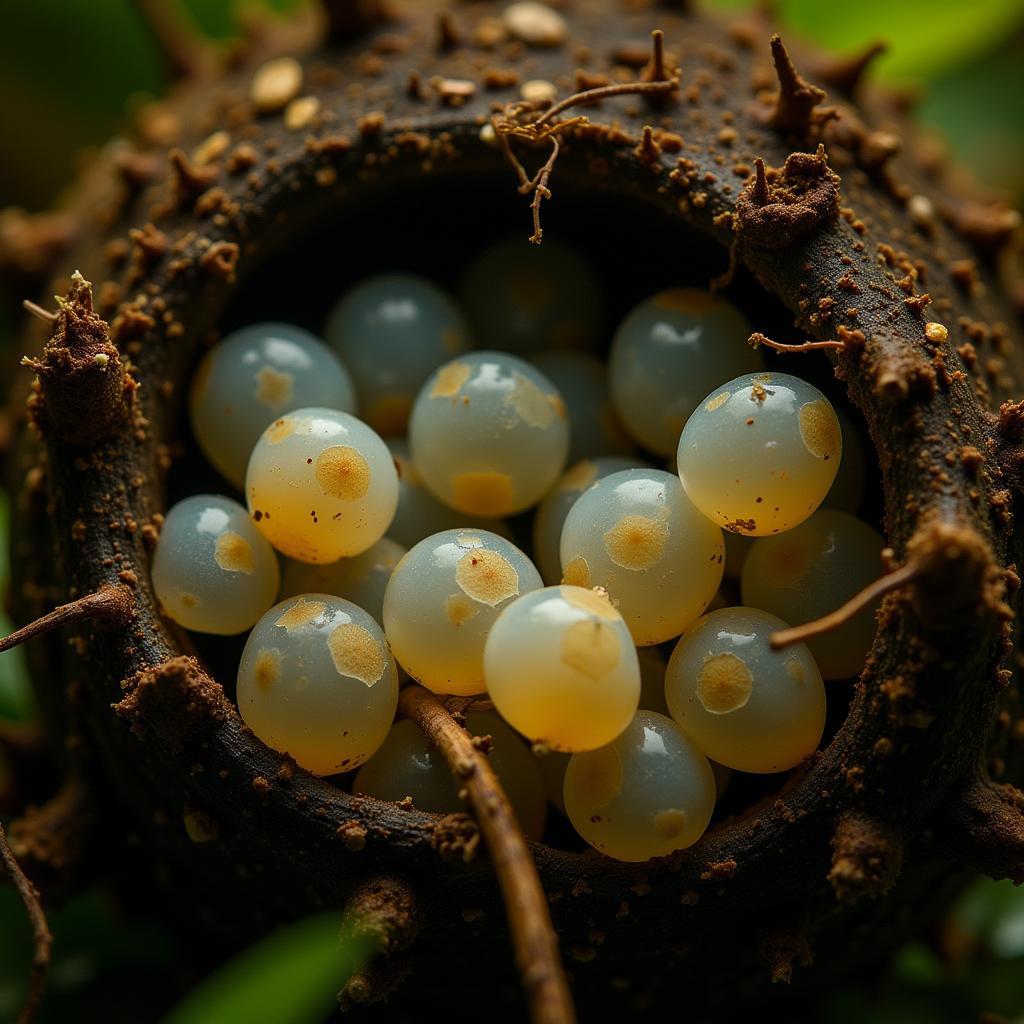African Catfish Mating: A Muddy Affair
African Catfish Mating is a fascinating process that plays a crucial role in the lifecycle of these important fish. Found throughout diverse freshwater habitats across the continent, African catfish, known scientifically as Clarias gariepinus, exhibit intriguing breeding behaviors that have fascinated scientists and fish enthusiasts alike.
Understanding the intricacies of African catfish mating is crucial not only for scientific knowledge but also for aquaculture practices, conservation efforts, and the management of wild populations. This article delves into the depths of African catfish reproduction, exploring their unique mating rituals, environmental factors influencing breeding, and the significance of their reproductive success.
The Mating Rituals of African Catfish
Unlike many fish species that rely on external fertilization, African catfish engage in a more intimate form of reproduction. The male catfish plays a vital role in attracting a mate and ensuring the survival of their offspring.
 African Catfish Courtship Display
African Catfish Courtship Display
Courtship Displays and Nest Building
During the breeding season, typically triggered by the onset of the rainy season and subsequent changes in water temperature and flow, male African catfish undergo a remarkable transformation. Their coloration intensifies, becoming more vibrant, and they develop a noticeable thickening of their lips. This physical metamorphosis serves to attract potential mates and assert dominance over rival males.
The courtship ritual commences with the male diligently constructing a nest. Using his mouth and fins, he excavates a shallow pit in the muddy or sandy substrate, often concealed amongst vegetation or submerged roots for protection. This nest serves as a safe haven for the eggs and developing fry.
Once the nest is complete, the male entices a female to inspect his handiwork. He performs a mesmerizing dance, swimming in circles around the female while vibrating his body and fins. The purpose of this elaborate display is to both attract the female and demonstrate his fitness as a mate.
Spawning and Fertilization
If the female approves of the male’s courtship and nest, she will enter the nest and prepare to spawn. The male wraps himself around the female, stimulating the release of both eggs and sperm, resulting in fertilization. African catfish are highly fecund, with females capable of producing thousands of eggs depending on their size and environmental conditions.
 African Catfish Eggs in Nest
African Catfish Eggs in Nest
Environmental Influences on African Catfish Mating
The success of African catfish mating hinges on various environmental factors that directly impact their breeding behaviors and reproductive output.
The Rhythm of the Rains
Rainfall plays a pivotal role in triggering African catfish spawning. The increased water flow associated with the rainy season carries with it an abundance of food, creating optimal conditions for the growth and development of both adult catfish and their offspring.
Temperature and Water Quality
Water temperature is another crucial factor influencing African catfish breeding. These fish thrive in warmer waters, typically between 25-30°C (77-86°F), which stimulates hormonal changes necessary for reproduction. Additionally, water quality parameters such as pH, dissolved oxygen levels, and the presence of pollutants can significantly affect breeding success.
The Significance of African Catfish Reproduction
The reproductive success of African catfish has far-reaching implications, impacting various aspects of their biology, ecology, and human interactions with this species.
A Keystone Species
As a highly adaptable and prolific fish, African catfish play a vital role in the food web. They serve as both predator and prey, influencing the population dynamics of other aquatic organisms. Their reproductive success ensures the stability of aquatic ecosystems and contributes to the overall biodiversity of their habitats.
Aquaculture and Food Security
African catfish are a commercially important species, particularly in Africa and Asia, due to their hardiness, rapid growth rates, and delectable taste. Understanding their reproductive biology is crucial for optimizing aquaculture practices, enhancing breeding programs, and ensuring a sustainable supply of this valuable food source.
Conclusion
African catfish mating is a remarkable process that highlights the complex interplay between behavior, environment, and survival in the animal kingdom. By understanding the nuances of their reproductive biology, we gain valuable insights into the ecological significance of this species and its importance to human societies. As we continue to unravel the mysteries of African catfish reproduction, we open doors to new knowledge that can aid in conservation efforts, enhance aquaculture practices, and promote the sustainable management of this vital fish species.
FAQ
How often do African catfish reproduce?
African catfish typically reproduce once or twice a year, primarily during the rainy season when environmental conditions are most favorable.
How many eggs do African catfish lay?
The number of eggs varies depending on the size and age of the female, but they can lay thousands of eggs in a single spawning event.
What is the role of the male African catfish in reproduction?
Male African catfish are responsible for building the nest, courting females, and guarding the eggs and fry until they are old enough to fend for themselves.
How long does it take for African catfish eggs to hatch?
Under optimal conditions, African catfish eggs hatch within 24-36 hours.
What are some threats to African catfish reproduction in the wild?
Habitat degradation, pollution, overfishing, and the introduction of invasive species can negatively impact the reproductive success of African catfish populations.
Further Exploration
For deeper insights into the fascinating world of African catfish and other captivating aquatic creatures, delve into these insightful articles:
- Explore the ecological impact of invasive species with our article on African catfish species invasion class 12 biology.
- Discover the vibrant diversity of African cichlids and their unique breeding behaviors in our comprehensive guide to African cichlids and discus fish.
Contact us at +255768904061, email us at [email protected], or visit us in Mbarali DC Mawindi, Kangaga, Tanzania, for any assistance or inquiries. Our dedicated customer support team is available 24/7 to address your needs.
